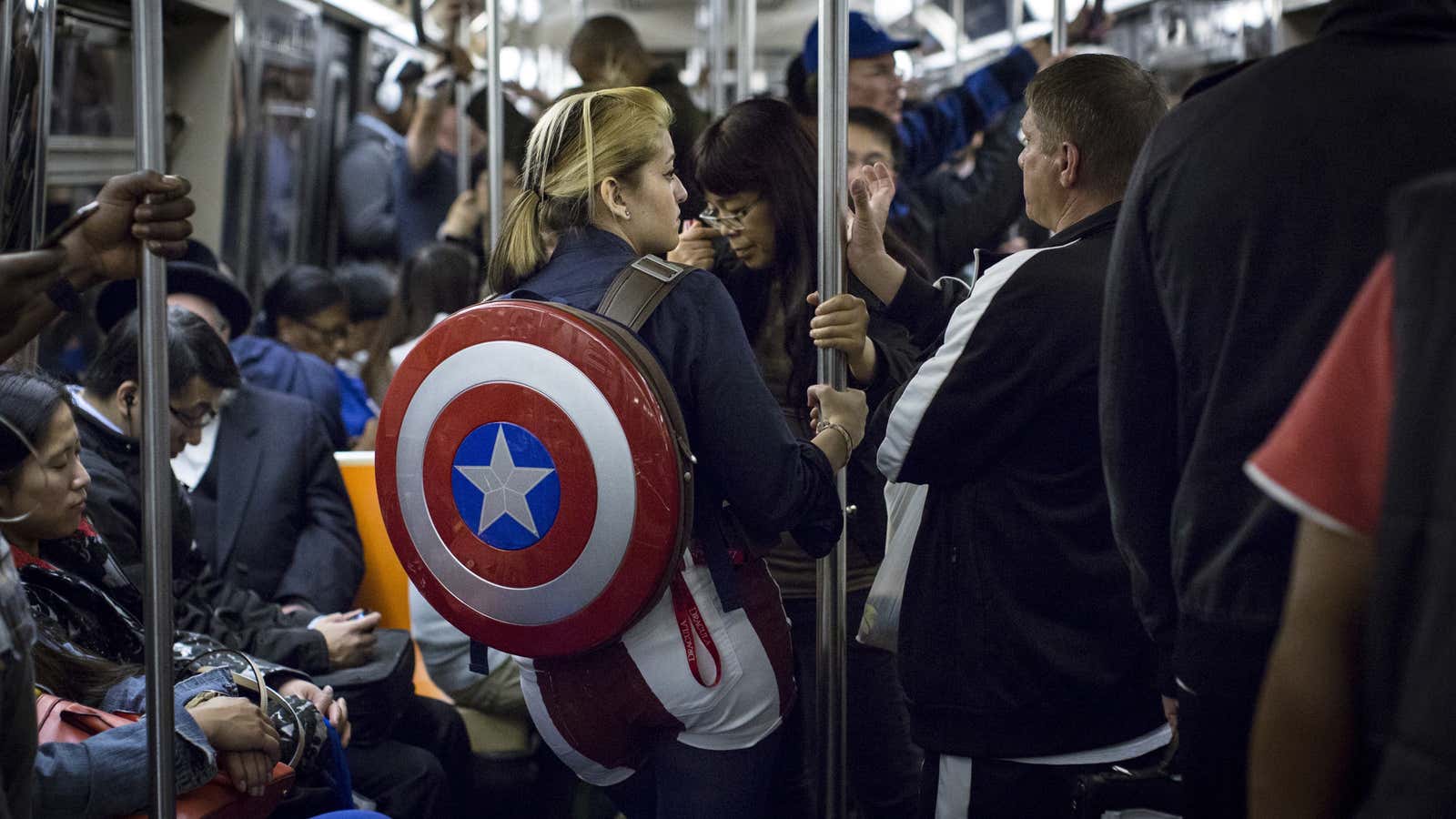Reports of racist attacks have surged following the US presidential election results on Nov. 9. A Muslim prayer room’s door was vandalized at New York University, Muslim women with hijabs have been intimidated and assaulted, racist slogans have been plastered on high school doors, and pro-Nazi graffiti has been found on the walls of a university, to name a few incidents.
But with the emergence of more racism, sexism, and xenophobia, movements to counter them have followed.
#Illridewithyou
People across the US are offering to ride on public transport with fellow residents who are feeling threatened since Donald Trump’s election by using the hashtag #illridewithyou, which originated after Sydney was under siege in December 2014. The movement has mobilized on social media platforms like Twitter and Instagram.
To make it easier for minorities to identify people who are not a threat to them, people are combining the #illridewithyou with a physically visible gesture—safety pins on their jacket lapels or shirts. People in Britain first adopted the strategy in the days following Brexit when hate crimes skyrocketed.
The safety pin movement is not necessarily meant to be a revolution against Trump but an attempt to protect the people who feel that they may be at risk of being targeted.
Yes, I’ll accompany my neighbor
In New York, a network of volunteers is mobilizing.
On Nov. 9, Kayla Santosuosso was contacted by a friend asking if she knew anyone who could accompany a Muslim woman on her train ride the next morning because she was too afraid to travel alone. To help look for volunteers, Santosuosso created a Google form titled “Yes, I’ll accompany my neighbor“ and posted this message on her Facebook page:
Urgent: I cannot believe I am asking this. I need folks in Harlem who would be willing to accompany a Muslim woman on the train ride to university (downtown), or the trip back. She has been repeatedly harassed and physically threatened multiple times this week. Police have been contacted but she needs to get to school. Please share and tag Harlem folks you know. We need people starting tomorrow AM
Before going to bed, Santosuosso saw that nearly 50 people had filled out the form. When she woke up in the morning, 1,500 people had signed up. By 4:30pm on Nov. 10, Santosuosso had a database of 2,550 and counting.
“This is a really strong showing that there are a ton of people out there who are ready to show up for their neighbors even in ways that might potentially be dangerous and cause harm to them,” Santosuosso said in an interview.
The woman who had originally sought help already found someone to accompany her, but Santosuosso continued collecting the names of willing volunteers—in Harlem and beyond—in hopes of connecting them with others who would like a companion for their commute. People from California, Oregon, Washington, Boston, New Orleans, and Washington, DC are asking to replicate her form to offer help to the vulnerable people in their respective communities.
Santosuosso, who’s the deputy director at the Arab American Association New York, is now working with immigrant rights organizations, muslim organizations and others to figure out how to broaden the initiative. She had hoped to create a network of 30 or so friends but the spiraling success of signups poses some challenges: “There’s no way to verify anyone’s identity, there’s no way to verify what people’s intentions are,” Santosuosso said. Now, coders and user interface designers are helping her develop a more secure and personal platform to collect volunteers.
Along with setting up a more evolved system for the commuter initiative, Santosuosso is looking to create networks to protect other minorities like those facing the threat of deportation, people of color, and LGBTQ people.




